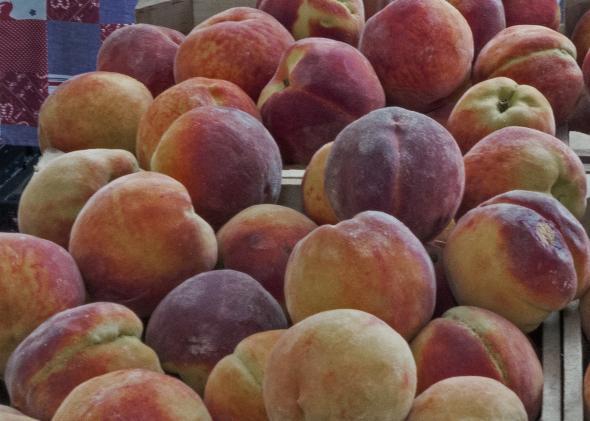JetBlue, one of the least bad airlines to fly (in my experience), announced plans this week to open a pop-up farmers’ market in its terminal at Kennedy Airport in New York at the end of October. The market, whose vendors will sell not only fresh fruits and vegetables but also non-perishables like pickles and jams, will also feature carnivalesque attractions like “education stations, a harvest-themed photo booth, a bike blender for people-powered smoothies, a composting pile with live worms, and a recycling game.”
“This Greenmarket will help local food and beverage companies better market their products, increase their sales and further build their brands to an audience outside the borders of the Empire State,” said New York Governor Andrew Cuomo, according to the press release announcing for the market, which—like the rest of New York City’s farmers’ markets—will be produced by a nonprofit called GrowNYC. On its face, the market seems to warrant Cuomo’s praise. What better way to advertise the Greenmarket and raise awareness about independent producers than to sell their delicious wares in one of the most heavily trafficked locations in the city?
But a few aspects of the planned market feel off-kilter. For one thing, having a single corporate sponsor belies the independent, grassroots spirit of farmers’ markets. Many customers go to farmers’ markets because they want to boycott big business and support an alternative, more humane economy. The patrons of JFK’s pop-up market, on the other hand, will essentially be participating in a PR campaign for a corporation that did $128 million in profits last year.
And then there’s the irony of an airline sponsoring a farmers’ market. It’s not as hypocritical as, say, Monsanto sponsoring a farmers’ market, obviously, but there’s an implicit conflict between the environmental impact of air travel and the appeal of farmers’ markets. Many people shop at farmers’ markets because they want to minimize “food miles,” the distance that ingredients travel from producer to consumer. The carbon emitted when food is transported long distances doesn’t account for the entire environmental footprint of food (production methods matter more), but it’s well established that airplanes are an enormous contributor to global warming. JetBlue has created a few sustainability initiatives, like a recycling program and “[s]aving paper by not offering an inflight magazine,” but these, like the pop-up Greenmarket, seem like distractions from the enormous amount of carbon JetBlue and other airlines release into the atmosphere each year.
You could make the utilitarian argument that it’s good for small farmers to get a chance to sell their goods no matter who’s sponsoring them. But that doesn’t address the biggest problem with JetBlue’s planned Greenmarket: An airport is just an awful place for a farmers’ market. It is hard to imagine an environment more hostile to squeezing pears and sniffing tomatoes than an airport. People tend to be tired, harried, and overloaded with luggage. Their bags are typically stuffed to the brim (leaving no room for delicate heads of lettuce or bulbs of fennel) and trapezius-taxingly heavy (and unable to bear the added weight of a jar of pickled okra).
JetBlue’s farmers’ market may only make the psychological strain of air travel worse, by taunting Tantalus-like travelers with their attractive food, reminding them how much happier they would be far away from TSA’s invasive security measures—at, say, a farmers’ market. Maybe I’m wrong, and the Greenmarket will temporarily transform the terminal into a cheerful, harvest-themed paradise. But I have a hunch it will take more than local food and a “recycling game” to make anyone want to spend time in JFK.
